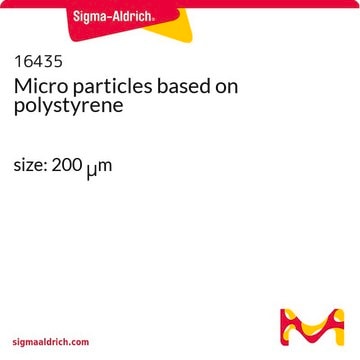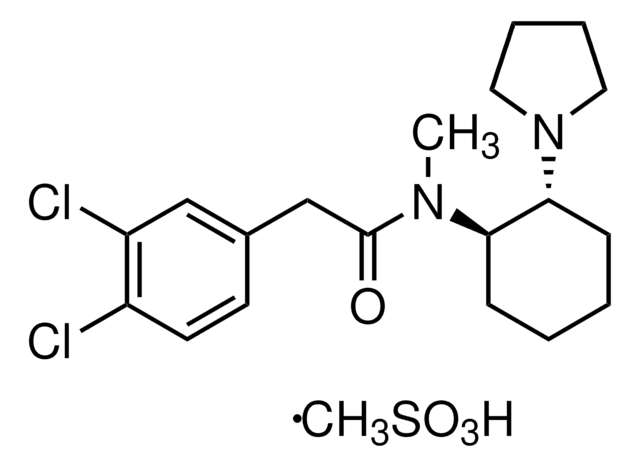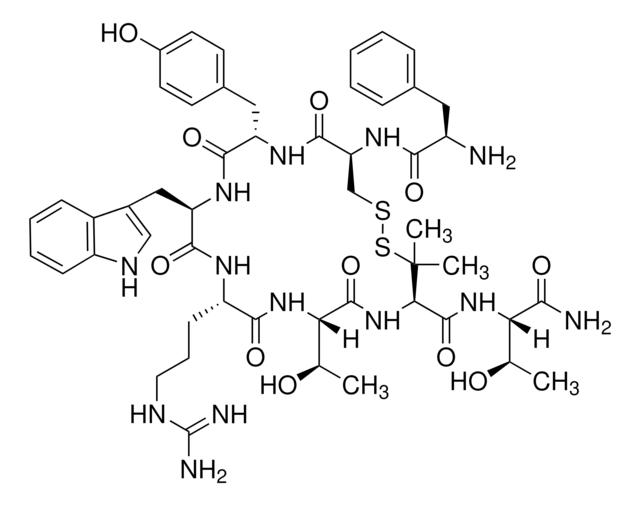U103
U-69593
solid
Synonym(s):
(+)-(5α,7α,8β)-N-Methyl-N-[7-(1-pyrrolidinyl)-1-oxaspiro[4.5]dec-8-yl]-benzeneacetamide, U69593
About This Item
Recommended Products
form
solid
Quality Level
optical activity
[α]/D +7.8°, c = 0.825 in methanol(lit.)
color
white
solubility
45% (w/v) aq 2-hydroxypropyl-β-cyclodextrin: 10 mg/mL
0.1 M HCl: >40 mg/mL
ethanol: >40 mg/mL
0.1 M NaOH: insoluble
H2O: insoluble
storage temp.
2-8°C
SMILES string
CN([C@H]1CC[C@@]2(CCCO2)C[C@@H]1N3CCCC3)C(=O)Cc4ccccc4
InChI
1S/C22H32N2O2/c1-23(21(25)16-18-8-3-2-4-9-18)19-10-12-22(11-7-15-26-22)17-20(19)24-13-5-6-14-24/h2-4,8-9,19-20H,5-7,10-17H2,1H3/t19-,20-,22-/m0/s1
InChI key
PGZRDDYTKFZSFR-ONTIZHBOSA-N
Gene Information
human ... OPRD1(4985) , OPRK1(4986) , OPRM1(4988)
mouse ... Oprk1(18387)
rat ... Oprd1(24613) , Oprk1(29335) , Oprm1(25601)
Looking for similar products? Visit Product Comparison Guide
Biochem/physiol Actions
Features and Benefits
Preparation Note
Storage Class Code
11 - Combustible Solids
WGK
WGK 3
Flash Point(F)
Not applicable
Flash Point(C)
Not applicable
Personal Protective Equipment
Certificates of Analysis (COA)
Search for Certificates of Analysis (COA) by entering the products Lot/Batch Number. Lot and Batch Numbers can be found on a product’s label following the words ‘Lot’ or ‘Batch’.
Already Own This Product?
Find documentation for the products that you have recently purchased in the Document Library.
Customers Also Viewed
Our team of scientists has experience in all areas of research including Life Science, Material Science, Chemical Synthesis, Chromatography, Analytical and many others.
Contact Technical Service





![[D-Ala2, N-Me-Phe4, Gly5-ol]-Enkephalin acetate salt ≥97% (HPLC)](/deepweb/assets/sigmaaldrich/product/structures/227/014/768064c2-9ae6-47bd-8550-e2aa5c3b61de/640/768064c2-9ae6-47bd-8550-e2aa5c3b61de.png)


